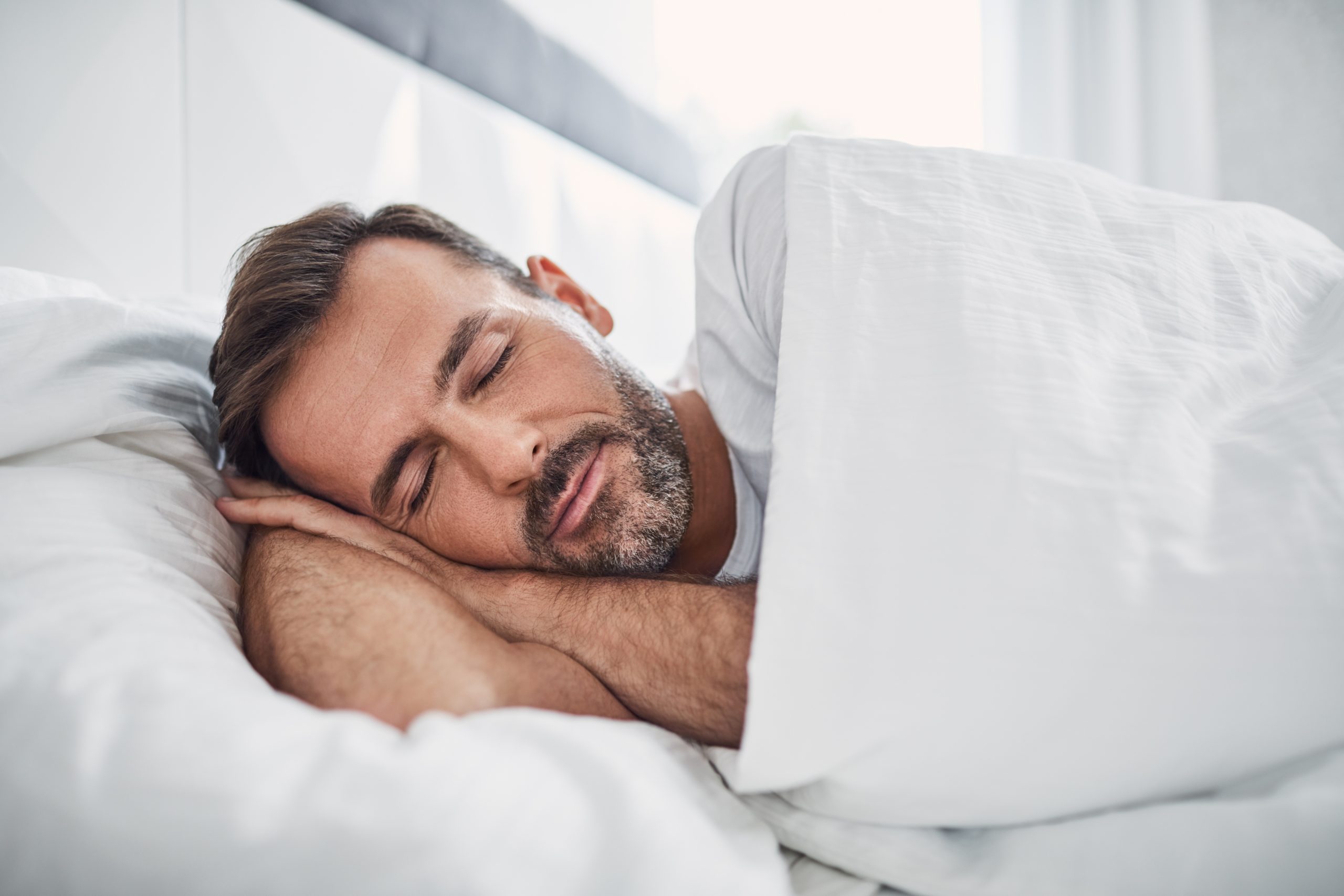Can sleep help a sore throat?

Can sleep help a sore throat?
It’s no secret that a good night’s sleep can be highly restorative, helping you to tackle the new day with fresh enthusiasm and energy[1]. It can be a great way to settle emotional turbulence, too. People often find ‘sleeping on’ important decisions helps them to take the time they need to make the best choice. We know that sleep affects our physical and mental wellbeing, but can it actually speed up your recovery from minor illnesses?
Does sleep help a sore throat?
Not getting enough sleep can affect your immune system’s ability to fight off infections[2]. In some cases, this can mean that a lack of shuteye can contribute towards a sore throat by making it easier for pathogens to enter the body and cause symptoms. Therefore, it follows that by getting enough quality sleep, you can help your body to avoid getting a sore throat in the first place.
However, it’s not quite as simple as good quality rest preventing illness. Throat infections are relatively common and it’s not unusual to find yourself with a sore throat even if you sleep well. But having a sore throat – and other symptoms, such as coughs, congestion and itchy eyes – can make it harder for you to get a good night’s rest. In turn, this affects your immune system’s ability to fight off the infection.
Even a mild sore throat can have this effect, because they often feel worse at night. This is partly down to the fact that the night hours are largely uneventful. It’s much easier to ignore discomfort and pain when you’re busy at work or home. But when you’re lying in bed trying to get to sleep, there’s not much to distract you.
Unfortunately, at this time when quality sleep is more difficult to achieve, you need it more than ever. Fighting off infections is hard work, which is why you often feel tired or fatigued when you’re ill. That’s no fun at the best of times, but think about how much worse it would feel with a night of insufficient slumber. As well as draining your energy resources, this can make your symptoms worse, and even compromise your efforts to fight off the infection.
What’s the solution?
So what’s the solution? If you need quality sleep to fight off your throat infection, but your sore throat is keeping you up, what can you do? The best option is to use a targeted anaesthetic throat spray such as Ultra Chloraseptic’s menthol throat spray. The formula uses benzocaine to numb the back of your throat. It numbs the pain for a while, which might be just what you need to help you get off to sleep.
Do women need more sleep than men?
Getting enough shuteye is important, so you might be wondering what exactly constitutes a good night’s sleep. Estimates generally centre around seven to 10 hours of sleep per night for both men and women. But it’s important to remember that quantity isn’t everything. 11 hours of poor quality sleep might not be as beneficial as six hours of high quality sleep. It’s best to aim for the most restful sleep you can achieve.
It’s also worth remembering that the amount of sleep you need varies from person to person, and can depend on your current circumstances. For example, each individual will usually have an average baseline of how many hours a night works for them. However, if they become ill, develop a sleeping disorder or start expending lots more energy during the daytime, they may need more sleep to feel rested and refreshed upon waking.
There is some evidence to suggest that the amount of sleep you need is dependent on demographic qualities such as gender. However, it’s thought that this is linked to the daily activities of these people. Research suggests that women do need more sleep than men, but the reasons for this are unclear[3]. It could be said that women need to be alert for more of the day as they may take on unpaid responsibilities in childcare and managing the household – but of course this is not always the case.
In any case, if you regularly wake up feeling tired and drained, consider getting more sleep. It might just help you to avoid a sore throat infection.
Resources:
[1] https://www.sleepfoundation.org/how-sleep-works/how-much-sleep-do-we-really-need
[2] Besedovsky, L., Lange, T., & Haack, M. (2019). The sleep-immune crosstalk in health and disease. Physiological Reviews, 99(3), 1325–1380. https://journals.physiology.org/doi/full/10.1152/physrev.00010.2018
[3] Burgard, Sarah A, and Jennifer A Ailshire. “Gender and Time for Sleep among U.S. Adults.” American sociological review vol. 78,1 (2013): 51-69. doi:10.1177/0003122412472048 https://pubmed.ncbi.nlm.nih.gov/25237206/

